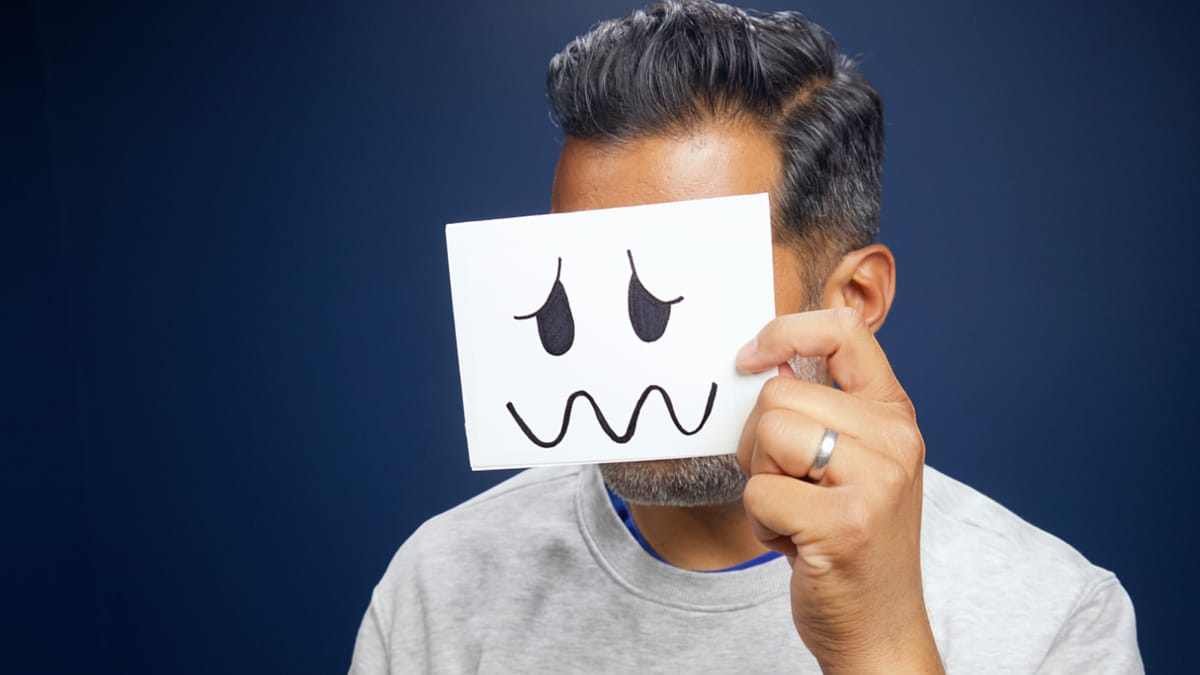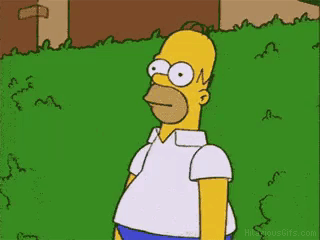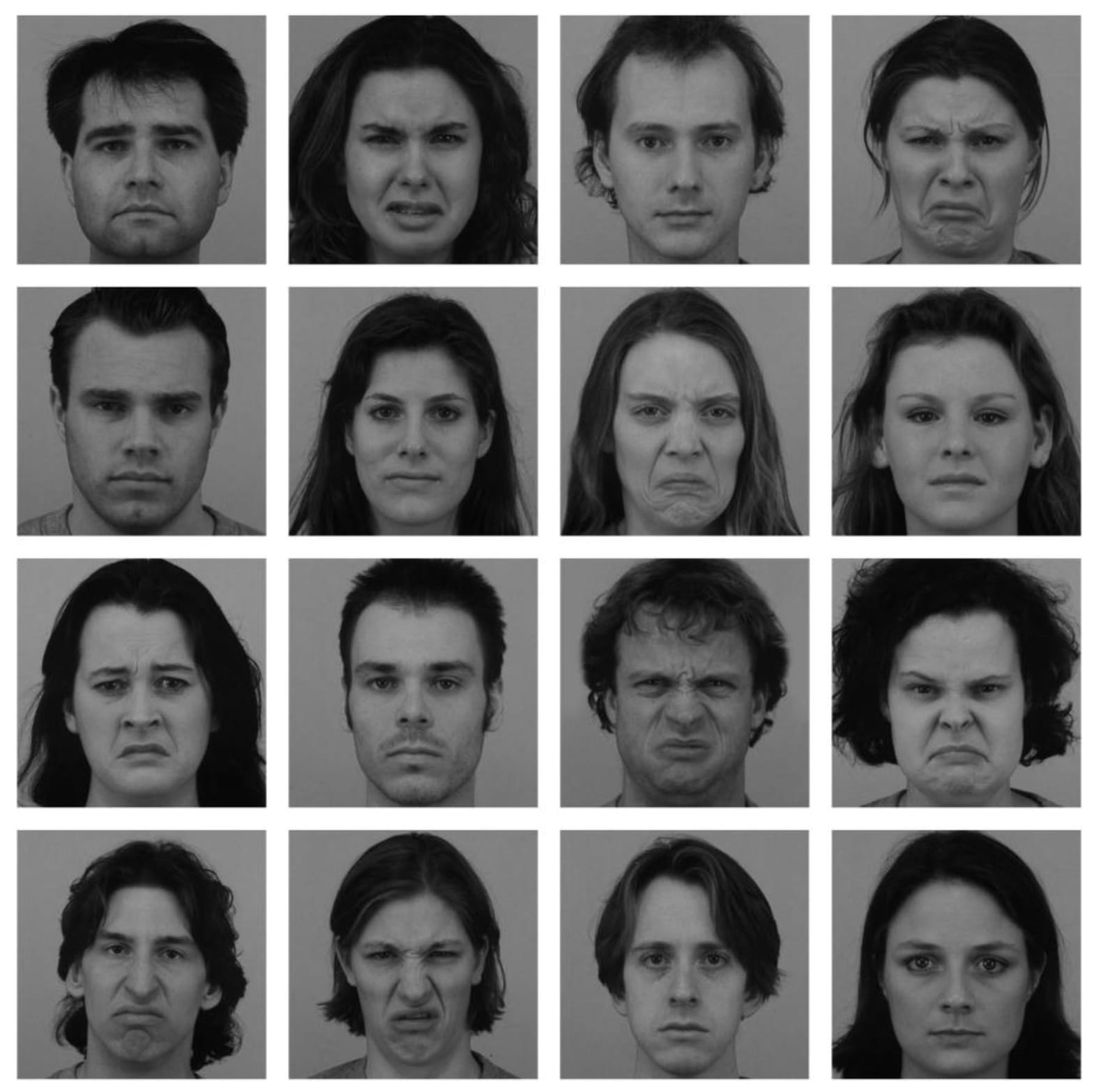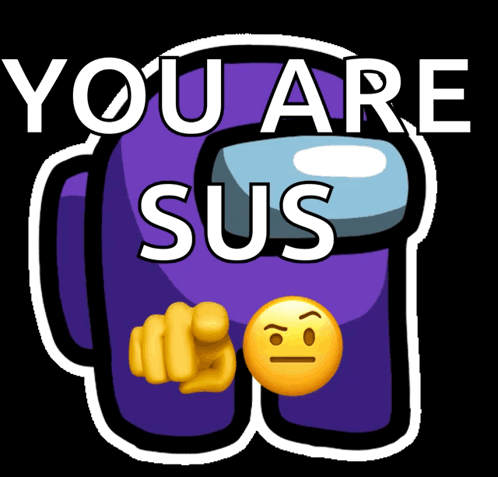Stop Blaming Yourself for Being 'Bad at People’
Social anxiety isn't about being "bad at people" - it shows how deeply we care about connection. By befriending our social anxiety instead of fighting it, we can learn to work with it differently.

Read time: 9 minutes
Objectives 🎯
- Understand how social anxiety creates a "difficulty setting" that makes connection harder.
- Learn why social anxiety isn't about being "bad at people" but about caring deeply about connection.
- Discover how to shift from fighting social anxiety to befriending it.
Remember in Lesson 1 when we learned that anxiety is like C-3PO from Star Wars - a well-intentioned but dramatic friend?
Here we'll explore what happens when that friend gets especially protective around other people.
True Story 📖
Denver, 2024
"I feel like I'm just bad at being human."
That's how James felt as he stood in the Denver airport, his mind racing for words that wouldn't come. After 18 years as an IT manager who could tackle any technical challenge, small talk felt impossible.
James is also a musician who can confidently perform for thousands. Yet one-on-one conversations terrified him.
At a company conference, James's anxiety reached a breaking point. Though he'd chatted easily with colleagues online for months, meeting them in person felt different. "I get to the baggage claim and read a text that a couple of the guys I've chatted with many times are waiting," he told me. "Great, I know them...No big deal."
But when he approached them, everything shifted:
"I walk up and say Hey! Shake his hand as etiquette goes. Smile and say how's it going buddy! Great to see you.... and he responds back similarly...and I'm dead in the water. My mind struggles for a funny quip or anything we can joke about. Thinking, thinking, thinking, (come on man, he's a great guy... surely you can come up with something to say) is what is pounding in my mind."
The only words he could muster: "Man it's a bit chilly out here, huh..."
Each interaction felt like a test he was failing. "It felt like being chased by a mass murderer," he later confessed. "I couldn't get in my room quick enough."

Things got worse later that night.
"I'm starting to rain hate on my own brain... Why? How did I get this far in life? Just pathetic. I'm going a mile a minute inside my head, 'You are a 50 year old man and you can't communicate with these 20 and 30 somethings...? You can't utter a single phrase?'"
When his girlfriend FaceTimed him, she immediately noticed his tears. After some gentle encouragement, James opened up about his struggles.
"Baby, you're having social anxiety," she said softly.
These words hit like lightning. Though James had heard the term before, it had never truly clicked. "Of course...I have social anxiety!!!" he recalled. "The words just bounced around in my head over and over... I couldn't stop thinking about it. Suddenly I felt a little better. It was something I could look up and read about."
This is what makes humans unique. We're wired for connection, collaboration, and shared purpose. Social anxiety exists precisely because relationships matter so much to us. At that conference of IT professionals, at least 1 in 12 people likely shared fears similar to James’s—two or three people at every table, quietly wrestling with self-doubt while appearing perfectly ‘normal’ on the outside.
This shared experience of feeling alone in our anxiety can actually bring us together. When we understand that our fears of judgment and disconnection are universal, they become bridges to deeper connection rather than barriers.
Here's What I've Seen 👀
In my work, I often meet people who:
- Watch others chat effortlessly while they overanalyze the "perfect" moment to join—and never do.
- Keep conversations surface-level, afraid that opening up might lead to rejection.
- Are so focused on presenting themselves correctly that they can't even remember what others say.
- Avoid social situations, telling themselves they're "not feeling well" when really, they're scared.
- Worry their uniqueness makes them stand out in all the wrong ways.
To understand why social situations feel so overwhelming, we need to explore both biology and experience.
Here's What We Know 🧠
Social anxiety isn't about being bad at connecting—it's about caring so deeply about connection that your mind overprotects you from perceived judgment. Just like we discovered in earlier lessons, fighting against this protection only makes it stronger.
Science reveals several factors that contribute to social anxiety:
- Nature: Some people are born with their anxiety dial turned higher—it's genetics. I inherited this from my mom, who struggled with social situations too. For people with heightened anxiety, our brains act like smoke detectors that go off at the slightest hint of burnt toast.
- Nurture: Even one embarrassing moment can leave a lasting impression. When I was 7 years old, accidentally jumping into a pool wearing socks at a birthday party felt mortifying. My brain made a powerful connection: Parties = Danger. These associations can shape us for years.
- Learning: Avoiding social situations robs us of critical practice. Each time we skip an event or stay quiet in a meeting, we miss chances to learn:
- How to navigate conversations.
- How to recover from awkward moments.
- How normal it is to feel nervous.
I learned this the hard way - after that pool incident, I stopped going to birthday parties, which led to fewer invites, which meant even fewer chances to learn these skills.
- Attention: Socially anxious brains process faces differently. Research shows that their amygdala—the brain's alarm system—becomes more active when encountering neutral expressions, often seeing threats where there might not be any. Their minds also zoom in on potential social dangers, focusing on threatening faces more than neutral ones.

That’s probably why I thought everyone was laughing at me when I jumped in that pool with socks…when it might have only been one or two people who even noticed. But those scary faces were all I could see.
But here's something crucial to understand: the fear you experience in social situations is often just...normal awkwardness. Meeting colleagues after a long flight or making small talk with strangers is inherently awkward. No one is at their best in those moments. And sure, jumping into a pool with socks might be unusual, but people make mistakes and do quirky things all the time—it’s part of being human.
The problem is never the awkwardness—it's how we interpret the awkwardness. People with social anxiety often interpret these normal social hiccups as evidence of personal failure, which only makes connecting harder.
Think About It Like This 💡
Social anxiety is like playing a video game stuck on the hardest difficulty setting, while everyone else seems to be playing on normal:
- Every conversation feels like a boss battle.
- Your energy depletes faster.
- The screen is cluttered with distractions: "Don't forget to make eye contact!" "Why are you sweating?" "Be more interesting!"
- The stakes feel impossibly high—even for simple interactions.
For me, it feels a lot like playing Among Us. If you're unfamiliar, it's a game where you work together on a spaceship while identifying the imposter sabotaging your progress.

With social anxiety, it's like assuming everyone is the imposter:
- Someone yawns? "Suspicious behavior detected!"
- They say hi? "ALERT: Trap detected!"
- You get a compliment? "WARNING: Hidden agenda!"
The truth is, you're not actually playing a different game than everyone else—you're just experiencing normal human connection with your anxiety dial turned up high.
Understanding this "difficulty setting" isn't just about explaining why things feel harder—it's about being kinder to ourselves. Just as you wouldn't blame a new player for struggling on the hardest mode, we can learn to stop blaming ourselves for finding social situations challenging.
This is the first step in befriending our social anxiety rather than fighting it. It's the "B" in our BRAVER framework - and once we befriend our anxiety instead of battling it, the other steps like Remembering what matters and Expanding through experience become possible.
We'll explore those more in upcoming lessons, but for now, let's practice befriending through writing a letter to your social anxiety.
Try It Out ✨
Just like James discovered that naming his experience helped him feel better, writing to your social anxiety can help you understand and work with it differently.
Think of this as studying the toughest boss fight in ‘hard mode.’ Naming your anxiety helps you spot its patterns, making it easier to respond instead of react.
Here's what my note looks like:
Dear Social Anxiety,
I know you're trying to protect me.
When I'm around others, you make me worried that people think I am weird.
You learned to be this protective because my mom was anxious and like her I learned to avoid social situations.
Like C-3PO, you're good at spotting potential problems. Sometimes your warnings have even helped me take meetings and presentations more seriously.
But while you're trying to keep me safe, you're also keeping me from making new friends.
Maybe we can be brave together as I try to focus on what's really happening versus what I'm imagining.
Take a moment to reflect. Notice how it feels to acknowledge both the protective intention behind your social anxiety and the ways it might be overdoing its job.
This revelation transformed James's conference experience. "Was I able to hold a conversation...not really," he reflected, "but I was ok just knowing I'm not a failure, I'm just socially anxious and there are things I can learn to do about it."
The key isn't avoiding fear or fighting it or blaming ourselves for having it. It's about understanding it, experiencing it, and showing up with our anxiety. As James put it:
"It's still hard mode, but now I know I'm not the only one playing on this setting—and that makes the game feel less lonely."
In my next lesson, I share the four most important things to do when you feel your social anxiety turn on. Until then, boldly go 🖖🏽
Dr. Ali
P.S. Has this changed your view of social anxiety? Reply with a yes or no—or share your own story. I’d love to hear from you!
Summary 📝
- Social anxiety is like playing life on hard mode - it makes connection challenging but not impossible.
- Social anxiety isn't about being "bad at people" - it shows how deeply we care about connection.
- By befriending our social anxiety instead of fighting it, we can learn to work with it differently.
- Understanding leads to self-compassion, which helps us show up authentically even when anxious.
Dive Deeper 🤿
📺 YouTube: Here's the first video that James found explaining what social anxiety is and a second that helped him feel less alone.
💬 Conversations: Here's a great conversation with a member of this community about how to overcome social anxiety without therapy and here I talk to Healthy Gamer's Dr. K about my own experiences with social anxiety and how to treat it.
🎤 Performance: My social anxiety started as selective mutism (I didn't talk in certain situations). Here's a performance of that story.
🤔 Cognitive Distortion: The Among Us bias is called "mind reading." Unlike Professor X, humans don’t actually have this superpower—though people with social anxiety often act as if they do.
📚Read: Here's a solid overview of social anxiety disorder.
🔬 Research Behind This Lesson:
- Lazarov, A., Abend, R., & Bar-Haim, Y. (2016). Social anxiety is related to increased dwell time on socially threatening faces. Journal of Affective Disorders, 193, 282–288. https://doi.org/10.1016/j.jad.2016.01.007